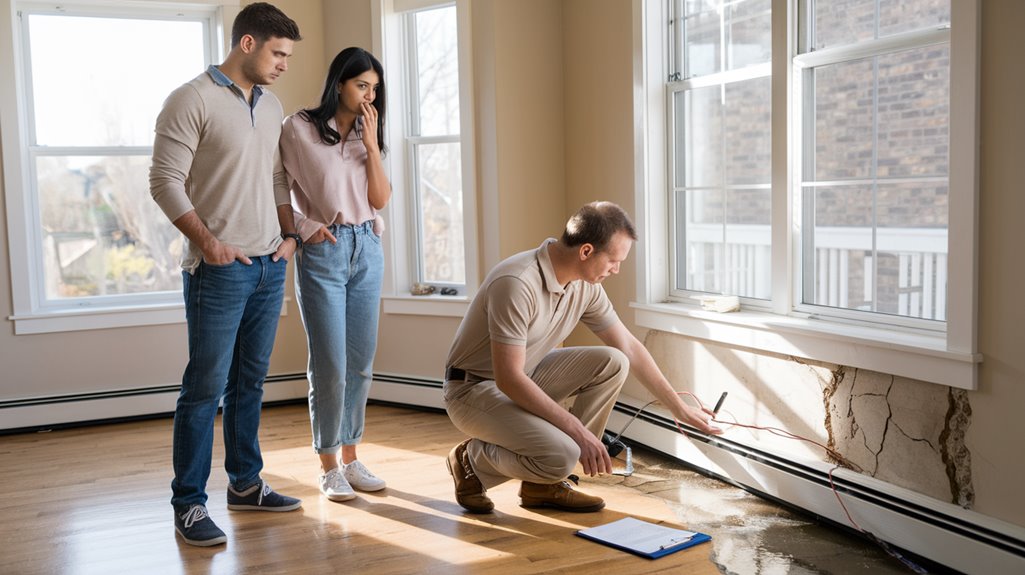When you buy a home, getting it checked by an expert is very important. Think of it like taking your body to the doctor for a checkup. A home inspector looks at every part of the house to find problems you can't see. They check if the walls are strong, if the roof leaks, and if the heating works well.
Bad things could be hiding in the house. The floor might not be safe. The walls might have tiny bugs. The air might make you sick. These problems cost a lot of money to fix – some even cost more than a new car!
If you skip the checkup, you might have to pay for big fixes later. You also won't be able to ask the seller to fix things or lower the price. Your insurance might not help if they find out you didn't check the house first.
Getting your house checked keeps you and your family safe. It also saves you from spending lots of money on surprise fixes. It's always better to know what's wrong with a house before you buy it.
Ready to start building equity in your own Michigan home? Get your personalized home loan quote today.
Hidden Structural Problems
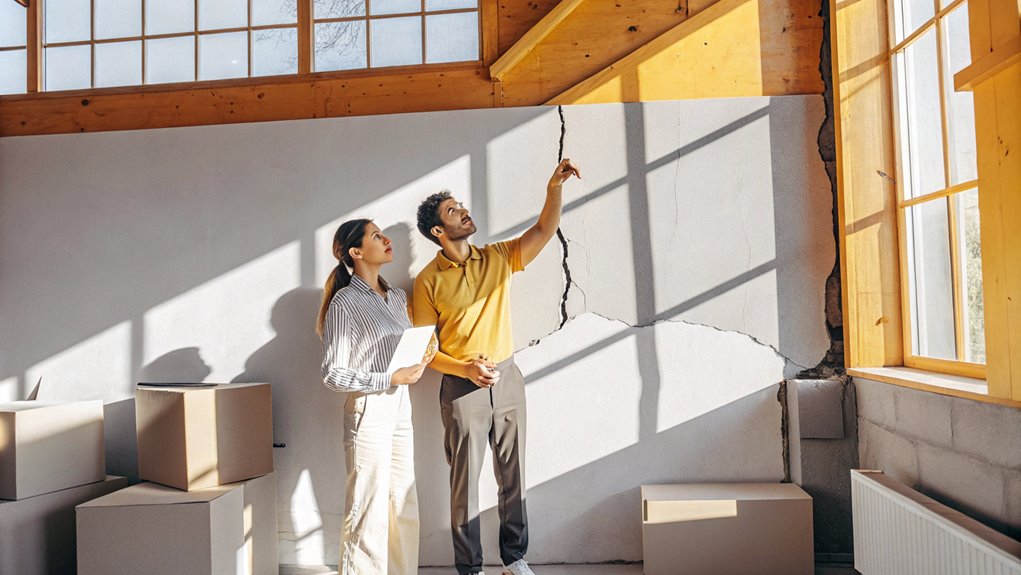
Your house may look great on the outside, but it can hide big problems inside its bones. These problems can make your home unsafe and cost you lots of money to fix.
A home inspector is like a doctor for your house. They look at parts you can't see, like the beams that hold up your floors and roof. They check if water has made things rot, if bugs have eaten the wood, or if the ground under your house is sinking.
The inspector will tell you if your house is tilting or if doors get stuck. They'll spot if walls are weak or if there are cracks in the base of your home.
If you skip this check-up, you might miss big issues that could cost as much as a new car to fix.
Michigan residents, unlock the door to your new home. Request your home loan quote from Treeside Financial today.
Major Systems Could Be Failing
When your home's big systems break, it puts you and your family at risk.
Your heating and cooling may make weird sounds or not work well. Old systems need extra care.
Bad pipes can leak and hurt your home with water.
Old wiring can start fires or shock you.
Have a pro look at these things to keep your family safe and warm.
HVAC Near Breaking Point
Your home's heating and cooling system works hard to keep you comfy. Just like an old car, it can start to break down. Small problems can turn into big ones if no one spots them early.
A home inspector knows what to look for. They check if cold and hot air flow well in each room. They look at the parts that make the system work. They also check the air ducts to make sure they're clean and sealed tight.
If the system is more than 10 years old, you might need to save money for a new one soon. Getting a new heating and cooling system costs a lot – more than most other home fixes.
It's smart to know what shape it's in before you buy a house.
Plumbing Problems Lurking Below
Your home's pipes need to stay healthy, just like you do. But sometimes they get sick in ways you can't see. This can cost you lots of money to fix.
A home inspector is like a doctor for your house. They look at all the pipes to make sure they work well. They check:
- The big water pipe that brings water to your house
- Any wet spots in walls that could make black, fuzzy mold grow
- How well water flows and drains
It's smart to find these problems before you buy a house. That way, you won't get any costly surprises later.
Let a pro look at the pipes first – they know what to look for.
Electrical System Safety Issues
Your home's wiring can be risky if it's old or has problems. Just like you need a doctor to check your health, you need an expert to look at your home's electrical system to keep your family safe.
Old homes can have bad wiring that can start fires. Some homes from the 1960s and 1970s have wires made of aluminum that can be unsafe. Past owners might've fixed things the wrong way.
You need special safety outlets in rooms that get wet, like your kitchen and bathroom. These outlets help stop people from getting shocked.
An expert will look at your electrical box to make sure it can run all your things like your TV and fridge safely. They'll also check for burned spots and loose wires.
Getting your home's wiring checked now can stop big problems and keep your loved ones safe.
Safety and Health Hazards
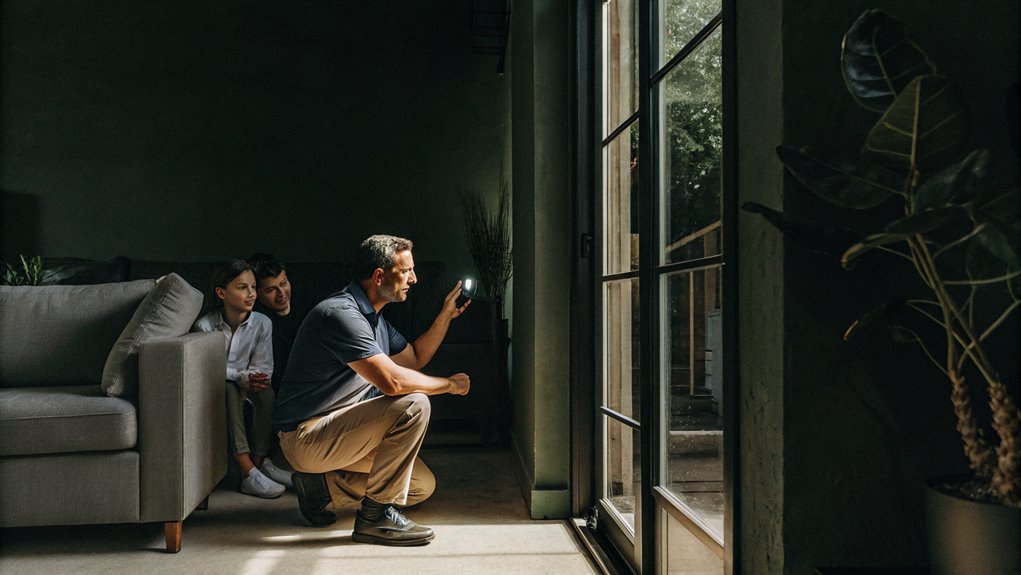
Your home should be safe for your family. But some dangers can hide where you can't see them. Getting a home inspector helps find these problems before they hurt anyone.
A home inspector knows how to spot:
- Harmful stuff in old paint and walls
- Bad air that can make you sick
- Hidden mold that can make you cough
- Weak spots that could break
Think about these risks:
- Bad air can sneak up from the ground
- Broken heaters can let out harmful gas
- Old walls and beams can fall down
A home inspector uses special tools to find these dangers. They check every part of the house to keep your family safe. This is much better than trying to find problems on your own.
Remember: What you can't see can still hurt you and your loved ones. Let a pro check your home to keep everyone healthy and safe.
True Cost of Future Repairs
Fixing up a home is much cheaper when you know what's wrong before you buy it. A home inspector can find problems early, so you can ask the seller to help pay for repairs.
If you skip the inspection, you might've to pay a lot of money later. Look at these common repair costs:
Bad foundation: $4,000-$10,000 – Takes 1-2 weeks to fix
New roof: $8,000-$15,000 – Takes 3-5 days to fix
New heating and cooling: $5,000-$12,000 – Takes 1-3 days to fix
When something breaks down fast, you have to pay more to fix it right away. You might need to miss work to watch the workers fix your home. This costs you both time and money you didn't plan to spend.
Legal and Insurance Implications
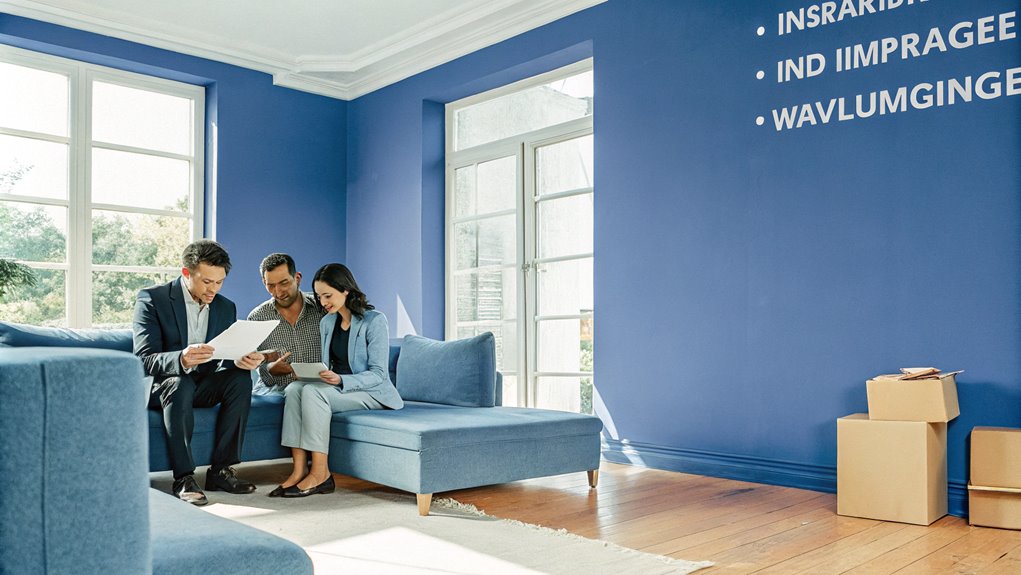
When you buy a house without checking it first, you could run into big problems with your insurance.
Think of it like going to the doctor – your insurance company wants to know your house is healthy! If you skip this checkup, they mightn't help pay for fixes later.
Also, if something breaks that was already broken when you bought the house, you'll have to pay for it yourself.
It's safer to get your house checked before you buy it.
Insurance Coverage Risks
Getting your home checked before buying it helps keep your insurance safe. Think of it like getting a checkup at the doctor – you want to know if anything is wrong.
When you skip this checkup, you might run into big problems with your insurance later. Your insurance company needs to know what's wrong with your house to help you the right way.
Here's why it matters:
- If your house has old problems you didn't tell them about, they mightn't pay when you need help.
- Things like bad wiring or leaky pipes need to be found early.
- You might've to pay more money later if they find problems in your house.
The best way to keep your house safe is to get it checked first. This way, you know what you're buying and your insurance will work when you need it.
Future Claims Denied
Getting Home Insurance: Be Honest About Your House
Your insurance company needs to know about any problems with your house before they cover it. If you don't tell them, they mightn't pay when you need help later.
It's smart to get your house checked by an expert before you buy insurance. They can find:
- Water damage that could lead to mold
- Bad wiring that could cause fires
- Weak walls or floors that might break
The inspector will write down what they find. This helps prove when damage happens – before or after you got insurance.
Insurance people look very closely at claims. They want to know if problems were there before you got insurance. If they think you weren't honest, they might:
- Say no to paying for fixes
- Stop covering your house
To stay safe, get your house checked first. Show the report to your insurance company. This way, they know you're being honest and will help when you need it.
Negotiating Power and Fair Price
A home inspection helps you get the right price for a house. When you get a home checked, you learn about any problems it has. This helps you talk about the price with facts, not guesses.
Think of it like checking a used car before buying it. You want to know if it needs fixes.
With a good inspection report, you can:
- Ask for a lower price if big problems show up
- Know exactly how much repairs will cost
- Show proof when the house needs safety fixes
Without an inspection, you might pay too much. You won't know if the house needs costly repairs until it's too late. This could mean spending lots of extra money later.
Remember: The inspection report is like a tool that helps you pay a fair price. Use it to protect yourself when buying a house.
Professional Assessment Beats Visual Inspection
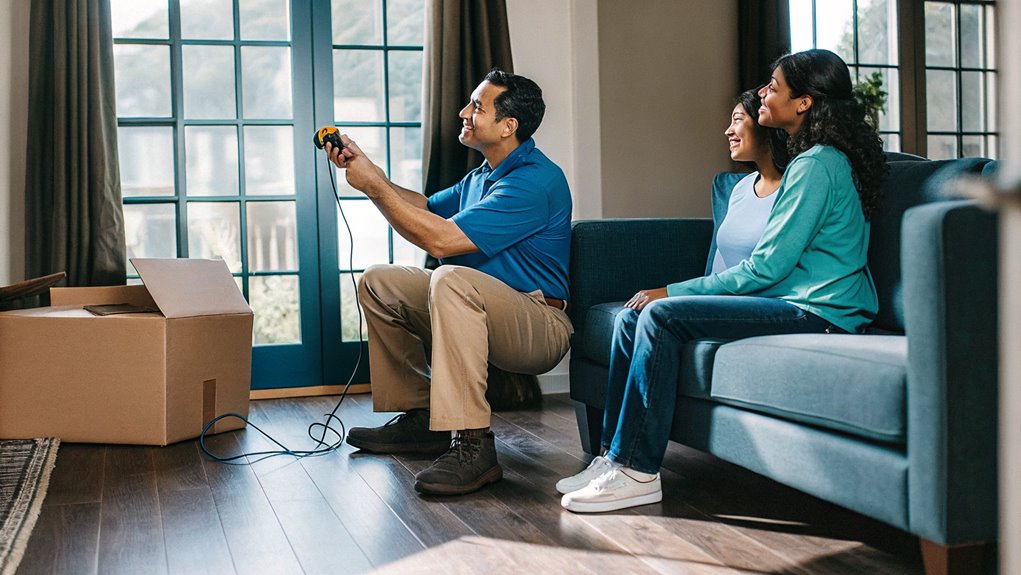
When you look at a house yourself, you might miss big problems that can cost a lot of money. That's why you need a home inspector to help you.
A home inspector is like a doctor for houses. They've special tools to find hidden issues. They can see water damage inside walls. They use cameras that show where cold air gets in. They test wires to make sure they're safe.
These experts go into small spaces and climb up high to check every part of the house. They take lots of pictures and write down what they find. This helps you know if the house is good or bad before you buy it.
The inspector gives you a report that shows everything wrong with the house. This helps you make a smart choice about buying the home. It's much better than trying to find problems on your own.
Red Flags Only Experts Notice
Your Home's Hidden Problems Made Simple
Home experts can spot problems that most of us miss. You might see water spots or wall cracks, but pros know where to look for bigger issues.
Think of these pros as house doctors. They find small problems before they turn into big ones that cost lots of money to fix.
Watch out for:
- Tiny up-and-down cracks in your home's bottom walls
- Dark spots near power outlets
- Wet windows that smell funny
Why do these matter? Those small cracks can mean your house is moving. Dark spots by outlets might mean fire danger. And those wet, smelly windows? They could mean you have bad mold in your walls.
That's why we need these experts. They've seen these problems many times before. They know what to fix now to keep your home safe and worth more money later.

